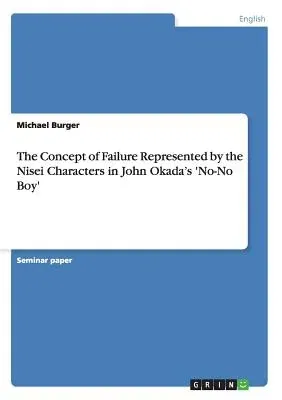Seminar paper from the year 2009 in the subject English Language and
Literature Studies - Literature, grade: 1,3, University of Augsburg (New
English Literatures and Cultural Studies), course: Japanese Canadian and
Japanese American Literature, language: English, abstract: A proverb
says: "War does not determine who is right, just who is left". Left,
that is naturally the veterans who managed not to get killed in battle
and thus survived their mission. But left, that is also the ones who
refused fighting in a war for their country, for whatever the reason.
War and its aftermaths clearly do not take a decision on which of the
two behaviors is right. It just leaves the involved people opposing each
other contrarily - like left and right. In John Okada's novel No-No Boy,
almost all of its characters are immediately confronted with the
previously mentioned discord. Set in the Seattle of 1945, No-No Boy
deals with the outer and inner conflicts of a young Japanese American,
named Ichiro, who refused the draft by a government, which in his eyes
deprived him of his identity as an American. The narration starts with
its central character, Ichiro, who had just arrived at a bus station in
Seattle and now sees himself confronted with a drastically changed and
diverse Japanese American community. By telling the story from Ichiro's
perspective, Okada thereby convinces his audience with an authentic
depiction of "a quest for self-identity under extreme circumstances"
(Huang, 2006: 152) in this fragmented and torn segment of society. Like
his protagonist, Okada himself was an American-born son of Japanese
immigrants, a so-called Nisei, and therefore also got evacuated from his
hometown Seattle during the war years. When the Second World War broke
out in 1939, Okada was in his mid-twenties and, unlike Ichiro in the
novel, volunteered in the US Air Force, only to get discharged again
directly after the war, in 1946 (see Huang, 2006: 152). Okada therefore
can be rated a prime source f


